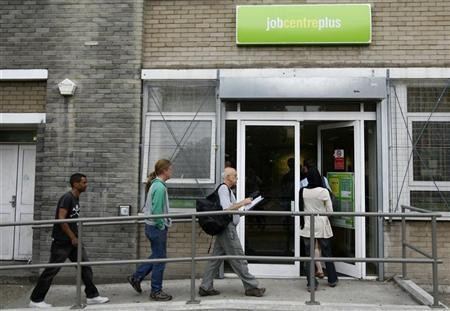'Extremely Poor' Work Programme Failing Long-Term Unemployed - MPs

MPs have launched a stinging assault on the government's flagship welfare-to-work initiative, the Work Programme, branding its performance "extremely poor" and hurling a number of criticisms at the Department for Work and Pensions.
The Public Accounts Committee (PAC) report blasted the Work Programme for failing the hardest-to-help in particular, such as the disabled, accusing providers of side-lining them in favour of easier cases because the cash incentives built into the system were not working.
Early data from the Work Programme, which launched in June 2011 and is designed to lift the long-term unemployed off benefits and into a job, shows that only 3.6 percent of participants moved into sustained employment during the first 14 months.
Sustainable employment is defined as work for at least a total of six months all in one block, or cumulatively for more than 16 hours a week.
This was well below the DWP's 5.5 percent target and worse than the number of people predicted to have found a job even if the scheme did not exist.
"While we recognised that it is early days for the Work Programme, such poor performance undermines the confidence in its long-term success," said the PAC, which has taken evidence from ministers and service providers.
"The DWP needs a better understanding of the factors that led to early performance being well below expectations in order to assess whether the longer term targets for the Work Programme are still achievable."
Margaret Hodge, chairwoman of the PAC, said it was "shocking" that just 20 of the 9,500 people on incapacity benefit taking part in the Work Programme had been placed in a job that lasted just three months.
"The Work Programme is absolutely crucial for helping people, especially the most vulnerable, get into and stay in work," she said.
"However its performance so far has been extremely poor."
DWP must 'hold poor performing providers to account'
Contractors provide the Work Programme on behalf of the government and are paid public money based on their results.
If they find someone who is long-term unemployed sustained work for at least six months, either in one go or cumulatively, then the government rewards them.
The most successful provider only managed to help 5 percent of participants into sustained employment, below the DWP target, with the worst performer managing just a 2.2 percent success rate.
"The DWP should put in place mechanisms to share lessons learned and disseminate good practice across providers," said the PAC report.
"It should also hold poor performing providers to proper account."
The PAC also attacked the DWP for how it handled data around the Work Programme's performance, accusing it of publishing figures "without sufficient context and explanation".
"The DWP's failure to publish information on its own expectations of performance, or an explanation of why actual performance was worse than expected, hindered a proper understanding of the programme's progress," said the PAC report.
"To our surprise, the DWP did publish unvalidated information from the trade body representing providers.
"It was also in stark contrast to the DWP's willingness to make parliament and the public wait for almost four months, hiding behind National Statistics requirements, before it published its own data.
"In future, the DWP should release information in a timely manner, and include details of expected as well as actual performance, explaining the differences between the two."
In the Work Programme's second year, the DWP has a 27.5 percent target for service providers, which increases again to 33 percent in the programme's third year.
Initial poor results have raised doubts over the effectiveness of the programme.
Work Programme has 'spectacularly underachieved'
Frances O'Grady, director general of the Trades Union Congress (TUC), said the Work Programme had managed to move just one in 28 people off benefits and into work.
"The government's Work Programme has spectacularly underachieved, even by its own modest targets," she said.
"It has failed those in greatest need, especially unemployed young and disabled people
"Ministers should now recognise that the Future Jobs Fund - a scheme they scrapped - was better at helping people into work and saved taxpayers' money. The Chancellor has the perfect opportunity to reinstate it in his Budget next month."
Katja Hall, chief policy director of the Confederation of British Industry (CBI), Britain's biggest lobbyist, was optimistic about the Work Programme's potential.
"The initial work programme results were disappointing, but the statistics represent a snapshot during the roll-out of the scheme and should be viewed in this light," she said.
"The programme is in its infancy and gains will come over the longer-term.
"Providers are paid by results and so are incentivised to improve performance. But to deliver the best outcomes we also need to ensure that they are working closely with local authorities, FE colleges and businesses.
"As the PAC highlights, it's important that statistics on the programme are set in context and explained clearly to ensure a rounded assessment of performance can be made."
Follow @shanecroucher
© Copyright IBTimes 2025. All rights reserved.






















